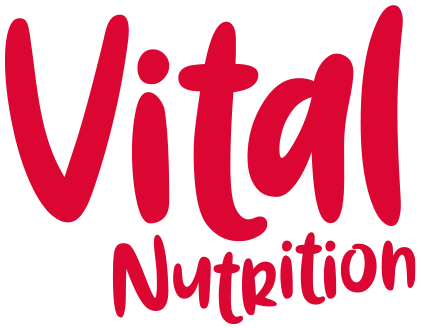Small changes to your diet can make a big difference
This week's announcement that the government are thinking of introducing an incentive plan to get young people to get the Covid vaccine by rewarding them with fast food vouchers got me thinking – or perhaps it is more accurate to say it got me swearing at the TV.
We know how important good nutrition is to support our immunity, so is this really the right message to be sending out?
It is well understood how poor nutrition can make us more susceptible to illness, so eating a healthy, balanced diet should be championed as a way that we can help look after our health – and I am not sure Deliveroo vouchers fit well with this.
One of the trends we have seen during the pandemic is that those with insulin imbalance, increased inflammation or underlying health conditions tend to be at higher risk for more severe Covid symptoms. Sometimes, these imbalances can be hidden. We know nothing about them until something goes wrong.
As a society, we eat too much junk – far too much sugar, refined and processed foods. Even before the pandemic, this was a major problem and contributing to an epidemic of obesity, type 2 diabetes and cardiovascular disease.
Metabolic syndrome, as it is known, is caused by our lifestyle, and poor diet is the main driving force for ill health.
A major factor that drives metabolic syndrome is insulin resistance. This is when our body just can't handle the constant demand for insulin, so we end up with blood sugar imbalance, high insulin levels and chronic inflammation.
The most significant factor contributing to insulin resistance is eating too much carbohydrate. That is, too much sugar, too many refined carbohydrates and too many starchy foods.
If we could make a few little adjustments to what we eat, we are likely to feel a whole lot better. When our insulin and blood sugar levels are out of balance, we end up feeling lethargic, unmotivated, 'hangry' – but when we strike a better balance we feel energised, more balanced, satiated after eating and in better form.
What if you could just change one or two little things in your diet and feel a whole lot better? Here are some suggestions to help you strike a better balance for blood sugar and insulin levels. Try shaking things up for a week or so and see how you feel.
Eat within a 10-hour window
Constant grazing, or eating little and often puts a demand on your pancreas to keep pumping out insulin to maintain stable blood glucose levels. Give your body break and try eating within a 10-hour window. If breakfast is at 8am, then don't eat anything after 6pm, or nudge breakfast a little later and eat between 10am and 7pm.
Drop the snacks
Eat three decent meals a day and eat enough to keep you going for four hours or so. Protein (meat, fish, pulses, eggs), fibre and fat (nuts, seeds, avocado, olive oil, full fat dairy products) will help keep you feeling fuller for longer, so pack your plate with salad or vegetables, add a palm size portion of protein and drizzle with some good quality olive oil.
Cut back on sugar
Notice where you look for sugar and make better choices. Dark (70 per cent cocoa) chocolate instead of milk chocolate, a handful of nuts to keep you going instead of a biscuit, or fresh fruit instead of fruit juice. All these swaps will help reduce your sugar load and balance insulin levels.
Reduce starchy carbohydrates
Try eating one meal a day that doesn't include carbohydrate (potatoes, bread, rice, couscous, crackers, cereals, biscuits, sugar etc).
This blog post first appeared as my column in The Irish News on Saturday7 August 2021.

